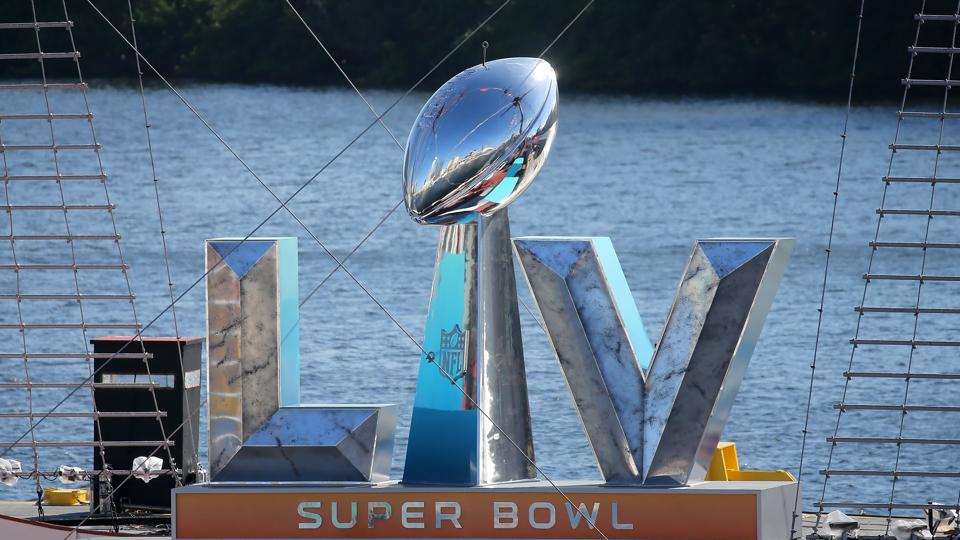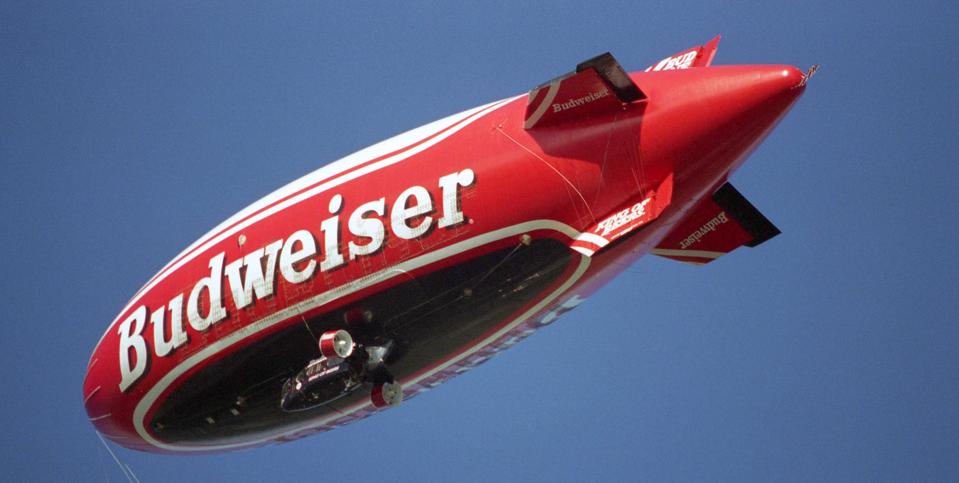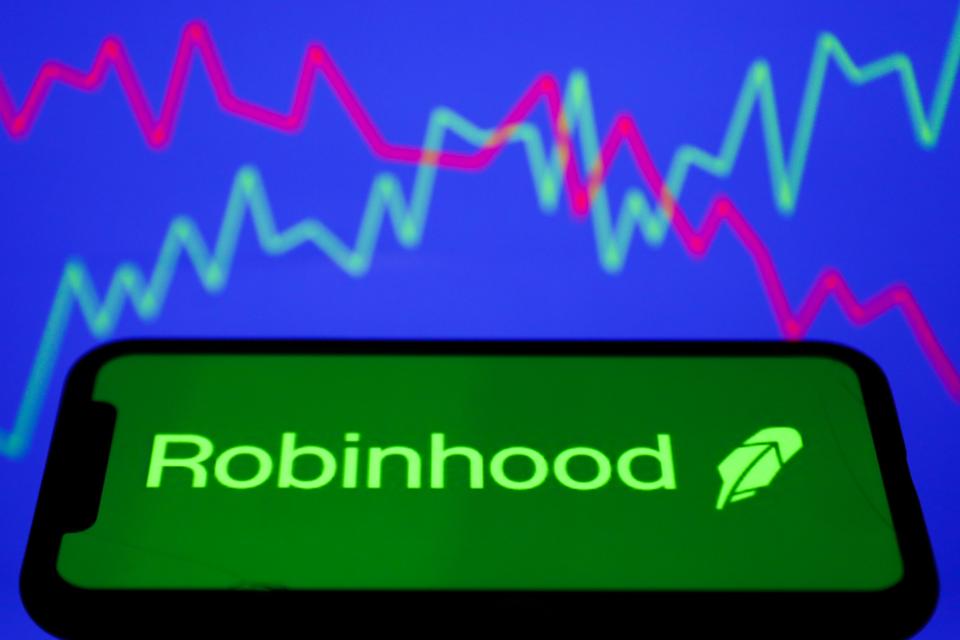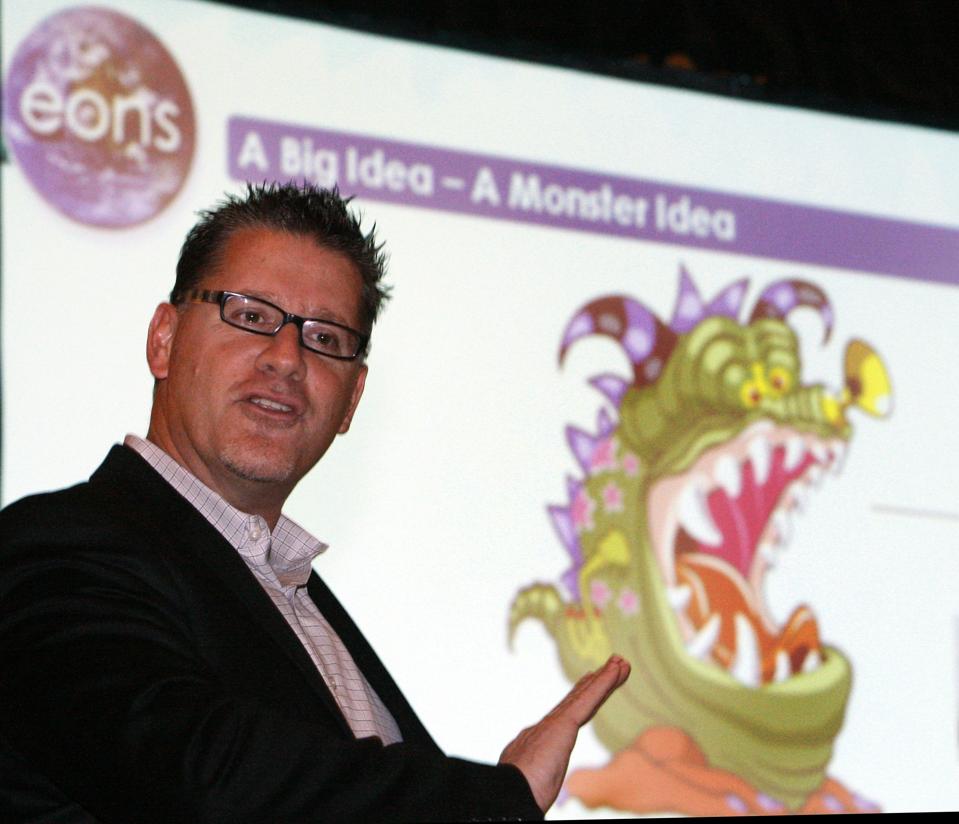
Super Bowl LV will have more commercials from Internet companies, while some traditional Super Bowl … [+]
ICON SPORTSWIRE VIA GETTY IMAGES
This Sunday, for the 55th time, the Super Bowl will be played among the champions of the American Football Conference and the National Football Conference, respectively, the Kansas City Chiefs and the Tampa Bay Buccaneers.
The winner of NFL’s finale to the football season (a football season unlike any other due to limited crowds and extensive Covid-19 testing and precautions) will not only be one of the two competing teams – but also CBS VIAC -1.3% will be a big winner with the huge revenue gathered from over 40 ads run during the game and previewed online.
In past years Super Bowl advertising has been dominated by consumer goods, beverages, snacks, cars, and some services (such as Turbo Tax). This year some of the

The Budweiser Blimp is a common sight at NFL games.
GETTY IMAGES
best known regular advertisers in the Super Bowl, such as Budweiser, Coke, and Pepsi are not advertising in the Super Bowl. Many of these traditional Super Bowl advertisers are “reallocating that money to increase public awareness about Covid-19 and the vaccination process” wrote Blake Morgan of Forbes.com recently.
So who is filling in those holes in the advertising schedule for the Super Bowl? As another reflection of the growth of the digital industry, this year there are 11 ads running in the Super Bowl from Internet/digital companies like Uber Eats, Amazon, Squarespace, Vroom, Mercari, Fiverr, Larna, Indeed, Dexcom DXCM -1.9%, Dr. Squatch

Robinhood is a popular Internet company that will be advertising in this year’s Super Bowl.
NURPHOTO VIA GETTY IMAGES
and Robinhood (newly famous from the Game Stop stock trading controversy). Last year there were only seven digital ads from such companies.
Looking back at Super Bowls past, and advertising from the dot.com industry, we first saw a Super Bowl ad from a dot.com in 1999 with a widely complimented ad from Monster.com – the online job site. According to Ad Age, “Before the Super Bowl, Monster.com’s traffic was running at about 1.5 unique visitors per month. For the remainder of 1999, it averaged 2.5 million visitors per month.” Ad Age named the Monster ad as the the ad of the year. Monster continued for a number of years to

Jeff Taylor, the CEO of Monster.com was a strong supporter of Super Bowl advertising.
ASSOCIATED PRESS
advertise in the Super Bowl after their first ad in 1999. Peter Blacklow, CMO at Monster.com in the early 2000’s, said, “the key to successful Super Bowl advertising is repetition – year after year.” I saw that in the research I conducted years ago for Monster.com when consumers said they were waiting for the new Monster ad at each Super Bowl. Blacklow, now a General Partner at Boston Seed Capital (an early DraftKings investor) said, “Every year, the Monday after Super Bowl, we saw our resume submission up by 50% or more. Super Bowls should not be treated as one-off commercials, but rather as a concerted long-term branding play.”
At the height of the first Internet boom, in the year 2000, the Super Bowl was played on January 30 and gained the moniker of the “Dot.com Super Bowl.” During that Super Bowl, 17 Internet-related companies advertised during the game. Just one month later the tech-heavy Nasdaq NDAQ -0.2%hit an all time high and soon after plunged by 75% in less than two years. The first Internet bubble was over and in 2001 only two dot.coms advertised in the Super Bowl.
The economy, attacked by the Pandemic, has nonetheless been a boom year for all of the stock market, and certainly for the major Nasdaq players, like the commonly monikered group of companies – FANG – Facebook Amazon AMZN +0.8%Netflix NFLX -1.5% and Googl GOOG -0.3%e. This year’s Super Bowl, with a big increase in advertising from Internet-related companies, is just another reflection of the robust economic power of the Internet.